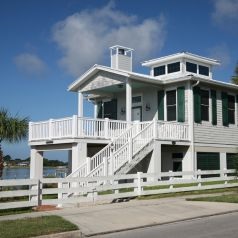Is a Second Home a Smart Financial Move?
For many, the allure of owning a vacation home is strong—envision a retreat for relaxation away from the daily grind. But beyond the dream, the reality of such a purchase involves a serious financial commitment. Before you invest in a second residence, take a closer look at what it entails to ensure it aligns with your financial plans and lifestyle needs.
Understanding the Costs
When contemplating the purchase of a vacation home, it’s essential to scrutinize the associated costs thoroughly. A second home is not only about the initial price tag; ongoing expenses such as mortgage payments, taxes, insurance, utilities, and maintenance can add up quickly. To avoid the trap of becoming ‘house poor’, a comprehensive budget is crucial. Remember, the best financial safeguard is the ability to pay in cash, but at the very least, ensure that the additional costs won’t hinder your savings for other financial goals.
The Upside of Renting Out Your Vacation Home
Renting out your vacation property can potentially cover all ownership costs, making it an appealing financial venture. However, it’s not without its downsides—additional responsibilities include maintenance and managing renters, which could lead to wear and tear or disturb the peace in your serene getaway. Consider these factors carefully before deciding to become a vacation home landlord.
Tax Implications to Consider
Taxes are a significant consideration for any property owner, but even more so for those with a second home. Property taxes can vary widely, with some high-tax counties charging over $10,000 annually. While tax deductions are available for second homes, they come with limitations, especially in high-tax states. Rental properties offer different tax benefits, including deductions as a business expense, but these rules are complex and depend on your usage and rental frequency.

Financing Options: Doctor Mortgages and Beyond
For high-income professionals like doctors, specialized mortgages may be available despite variable incomes or debt from student loans. While doctor loans can provide a path to securing a second home, they often come with higher interest rates compared to traditional mortgages. It’s vital to compare all available options to find the most cost-effective borrowing strategy for your situation.
Alternatives to Buying a Second Home
If the financial responsibility of a second home seems daunting, there are alternatives. Consider fractional ownership, timeshares, or simply continuing to rent vacation properties as needed. These options can offer the benefits of a getaway without the full commitment of ownership.
Final Thoughts for Potential Buyers
Vacation homes can be a rewarding investment for some, particularly high-earning individuals looking for a regular escape or a real estate opportunity. It’s important to stay focused on the costs involved and the potential return on investment to determine whether a second home is the right choice for you.
We Want to Hear from You
If you’ve taken the plunge into second-home ownership, share your experiences. Did your investment pay off, or did it become a financial burden? Join the conversation below with your stories and insights.

Did you miss our previous article…
https://pardonresearch.com/?p=21590
